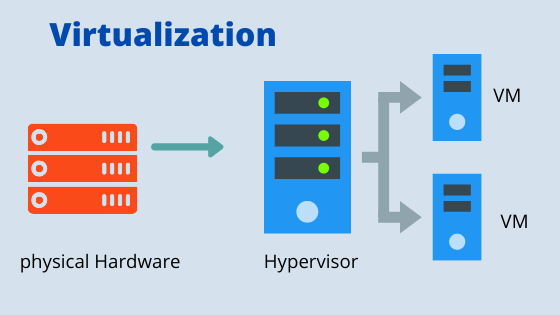PermalinkIntroduction
In the ever-evolving landscape of information technology, the concept of virtualization has emerged as a transformative force. Virtualization empowers organizations and individuals to maximize the utilization of their hardware resources, streamline operations, and enhance flexibility. In this article, we will delve into the essence of virtual machines and explore some of the popular virtualization platforms driving innovation today.

PermalinkWhat is a Virtual Machine (VM)?
A virtual machine (VM) is like a pretend computer created by software on a real computer. It allows multiple operating systems (OS) to run simultaneously on a single physical server or host machine. Each VM operates independently, having its own virtualized hardware resources, such as CPU, memory, storage, and network interfaces. This isolation ensures that activities in one VM do not interfere with others, creating a secure and versatile environment.

PermalinkPopular Virtualization Platforms
VMware:
- VMware is a market leader in virtualization solutions. vSphere is their product for enterprise-level virtualization.
Microsoft Hyper-V:
- Hyper-V is Microsoft's virtualization platform integrated into Windows Server. It provides a cost-effective solution for running Windows-based VMs.
Oracle VirtualBox:
- VirtualBox is a free, open-source virtualization tool suitable for both home and enterprise use. It supports various guest OSes and is known for its user-friendly interface.
KVM:
- Kernel-based Virtual Machine (KVM) is a Linux kernel module that enables hardware virtualization.
Xen :
- Xen is an open-source hypervisor that offers a lightweight and efficient virtualization solution.
Conclusion
Virtual machines have transformed the IT landscape, enabling greater efficiency, flexibility, and scalability. They have become an indispensable tool for businesses and individuals alike. As technology continues to evolve, so too will virtualization platforms and the capabilities they offer. If you're a interested in the world of virtualization, exploring these platforms and their potential applications is a fascinating journey into the future of computing.